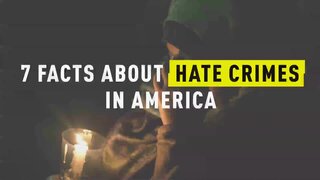Create a free profile to get unlimited access to exclusive videos, breaking news, sweepstakes, and more!
A Look Back At The Trial For Harvey Milk's Assassin — And His Light Sentence
Dan White, who assassinated Harvey Milk, the first LGBTQ person elected San Francisco city supervisor, was convicted of manslaughter and not murder. People took to the streets to protest.
After the first openly gay man to be elected in public office in California was assassinated by another local politician, many were outraged at the relatively light consequences for the crime.
Harvey Milk was known in San Francisco for his activism against then-popular anti-gay initiatives. He made history when the city elected him as city supervisor in 1977. And, during his time in office, he pushed for LGBTQ equality — but he only managed to serve 11 months before he was assassinated.
RELATED: Looking Back On LGBTQ Activist Bayard Rustin, Who Organized The Iconic March On Washington
As the 1984 documentary The Times of Harvey Milk shows, Milk sponsored a historic bill to ban discrimination in public accommodations, housing and employment on the basis of sexual orientation. The Board of Supervisors passed the bill by a vote of 11–1; the sole supervisor against it was Dan White. Mayor George Moscone signed it into law in March 1978.
White was a former police officer who stepped down from his elected position on the board on Nov. 10, 1978, after suffering a series of political losses, SF Gate reflects. Days later, he asked if he could get his position back but Moscone told White on Nov. 26 that he wouldn’t appoint him to replace himself — a move that Milk strongly supported.
On Nov. 27, 1978, White entered San Francisco's City Hall through a basement window — in order to dodge the building’s security — armed with a gun. He then hunted Moscone, 49, and then Milk, 48, down in their offices before shooting them both to death.
Not only did the assassinations shock the city and the country, but many declared it an attack on gay rights because of what Milk came to represent: Someone who would not only fight for the LGBTQ community but for anyone who was discriminated against, according to the documentary.
What disturbed many in the public even more was the trial that came next. White’s lawyer argued that White was operating at a "diminished capacity," due to depression. As evidence of that depression, defense witness Dr. Martin Blinder cited the fact that White, a previously health-conscious person, had changed his diet to include a lot of junk food, such as Twinkies. (Media coverage of the trial enshrined the term "Twinkie defense" into the lexicon to denote a seemingly longshot legal strategy, though White's attorneys weren't arguing that junk food caused White's actions, only that his increasing consumption of it was a symptom of depression that did contribute to the crime, according to Snopes.)
Prosecutors played White's taped confession at the trial, which they hoped would convince the jury to convict him of first-degree murder. But instead, jurors seemed to empathize with the assassin's sobbing confession. The jury seemed sympathetic to the way that White was depicted by his defense: Someone who was frustrated by living in the shadow of the more-popular Milk.
White was also depicted as someone who was fed up by with the so-called deterioration of morals. As National Public Radio reported in 2008, “White represented a working-class district where many felt under siege by the rising power of women, minorities and gays.”
Furthermore, the jurors sympathized with his financial struggles. He was running a failing potato-themed restaurant called Hot Potato on the city's famed Pier 39, and had asked to be re-appointed to the board for the $9,600 salary he had been earning.
RELATED: How A Gay Man's Execution Forced An Examination Of Anti-LGBTQ Bias Among Juries
The jury convicted White of voluntary manslaughter rather than murder, meaning that he would only serve a few years for both killings. In response to the verdict, thousands of protesters took to the streets with outrage. The documentary shows that some believed if White had just shot the mayor and not Milk, he would have been convicted of murder, and that the verdict came down to homophobia.
The protests, which started at City Hall and were broken up by tear gas, were exacerbated when police officers rolled into San Francisco's gay district, the Castro, after the City Hall protests had ended and began to illegally shut down gay bars and beat patrons in the street, according to SFGate. Both events, the latter of which only ended when San Francisco's police chief went to the Castro and ordered officers to leave, became known as the "White Night riots."
White served five years and one month. After his release, he died by suicide in 1985.
“In San Francisco, Mr. Milk came to be revered among" the LGBTQ crowd as a "kind of martyr whose death encouraged them to become more aggressive in seeking political power,” the New York Times noted.
(This article was originally published on June 10, 2022. It was updated on June 5, 2023.)



















